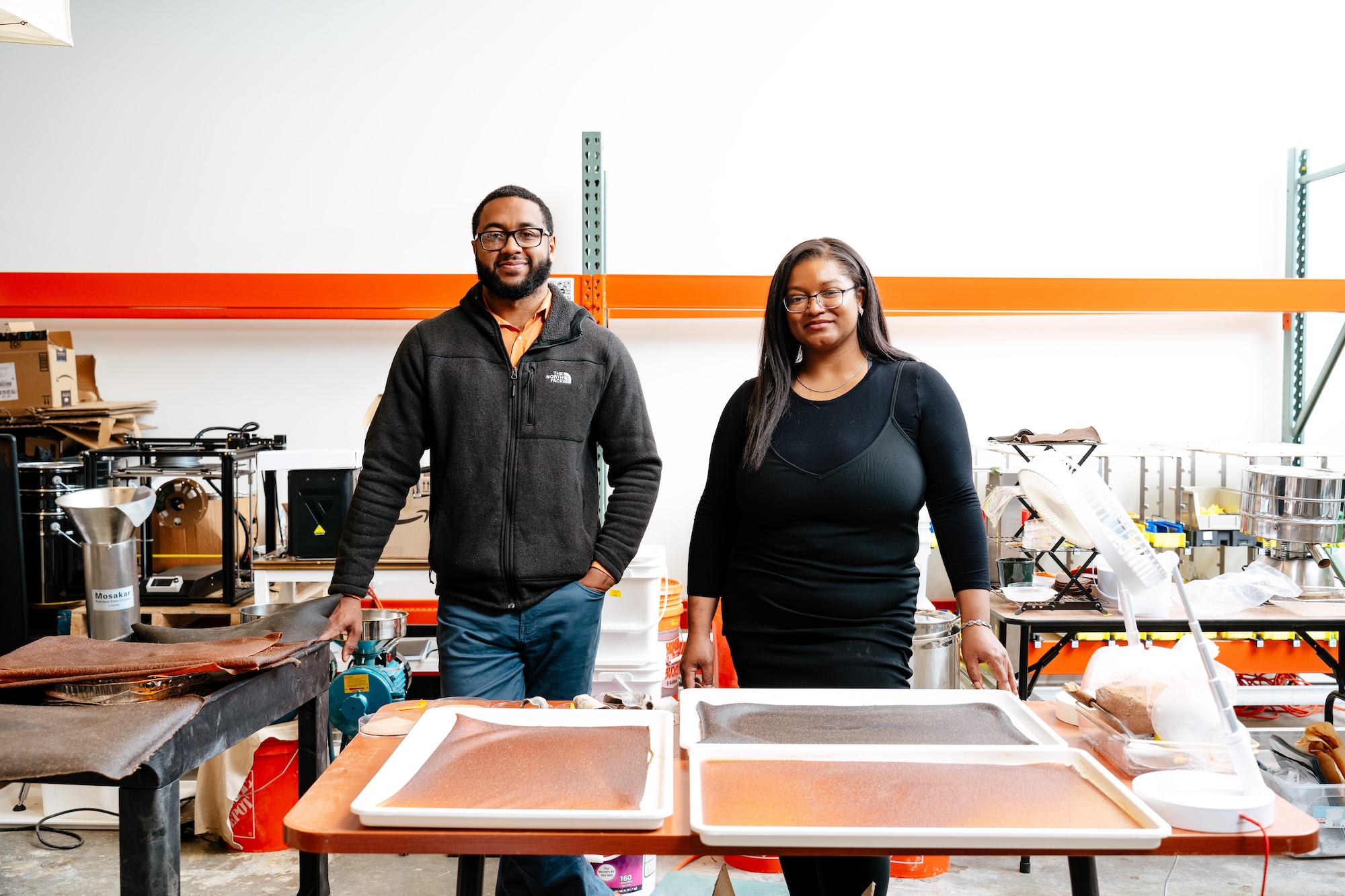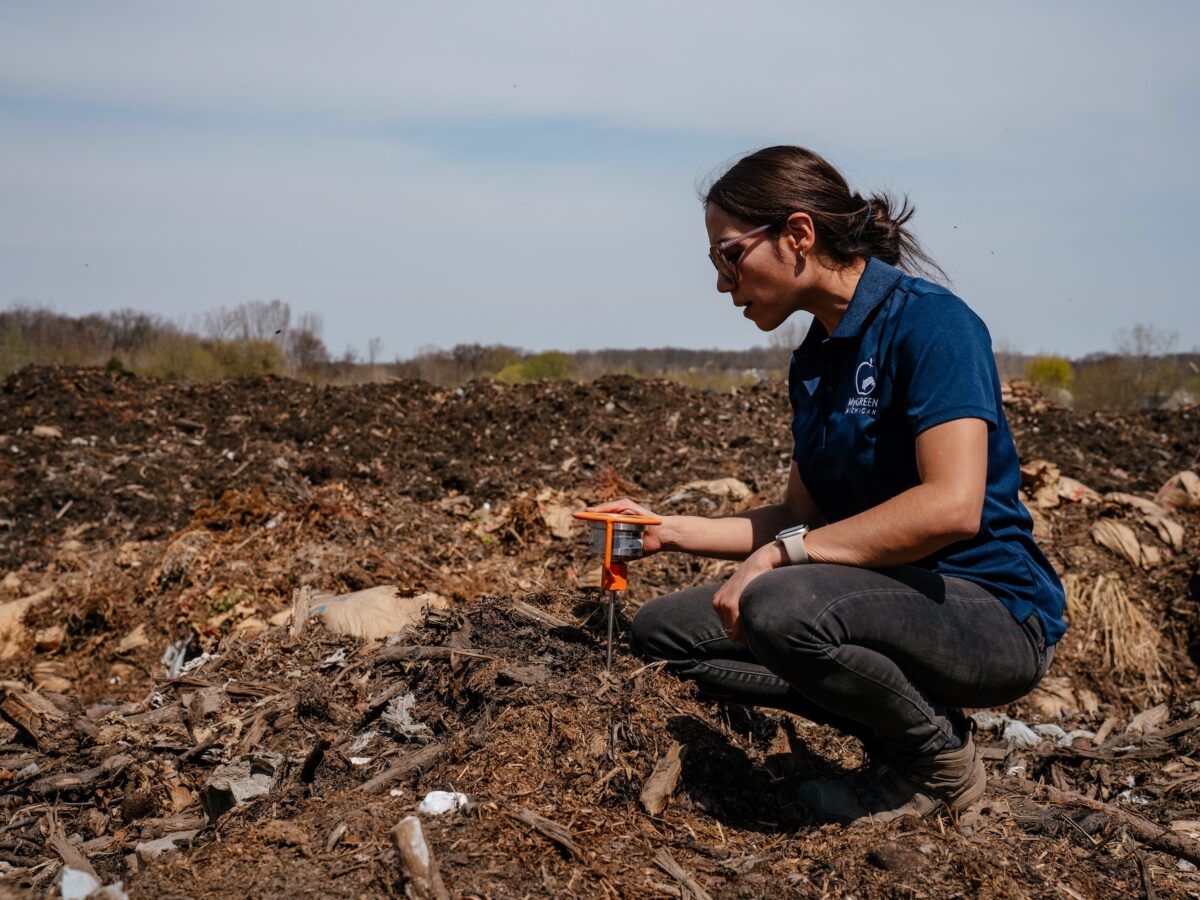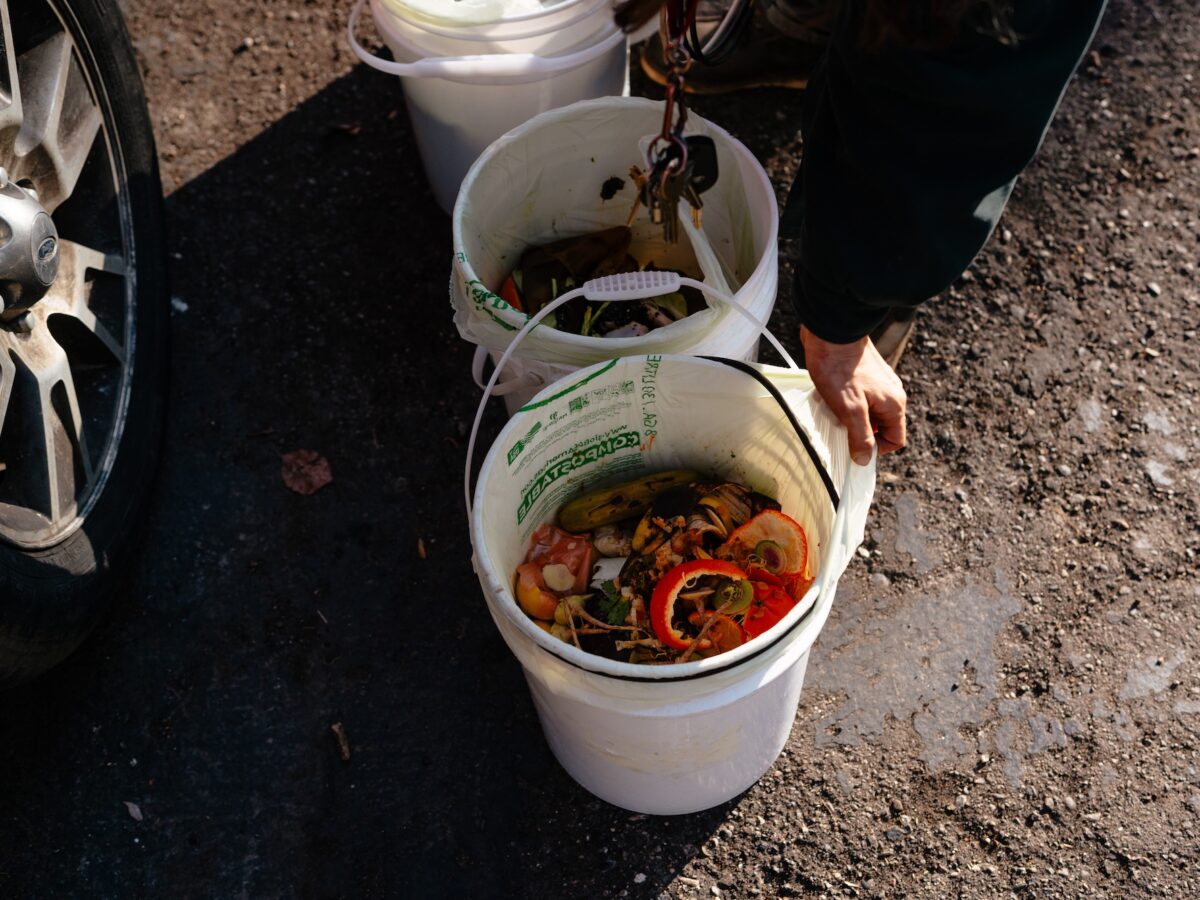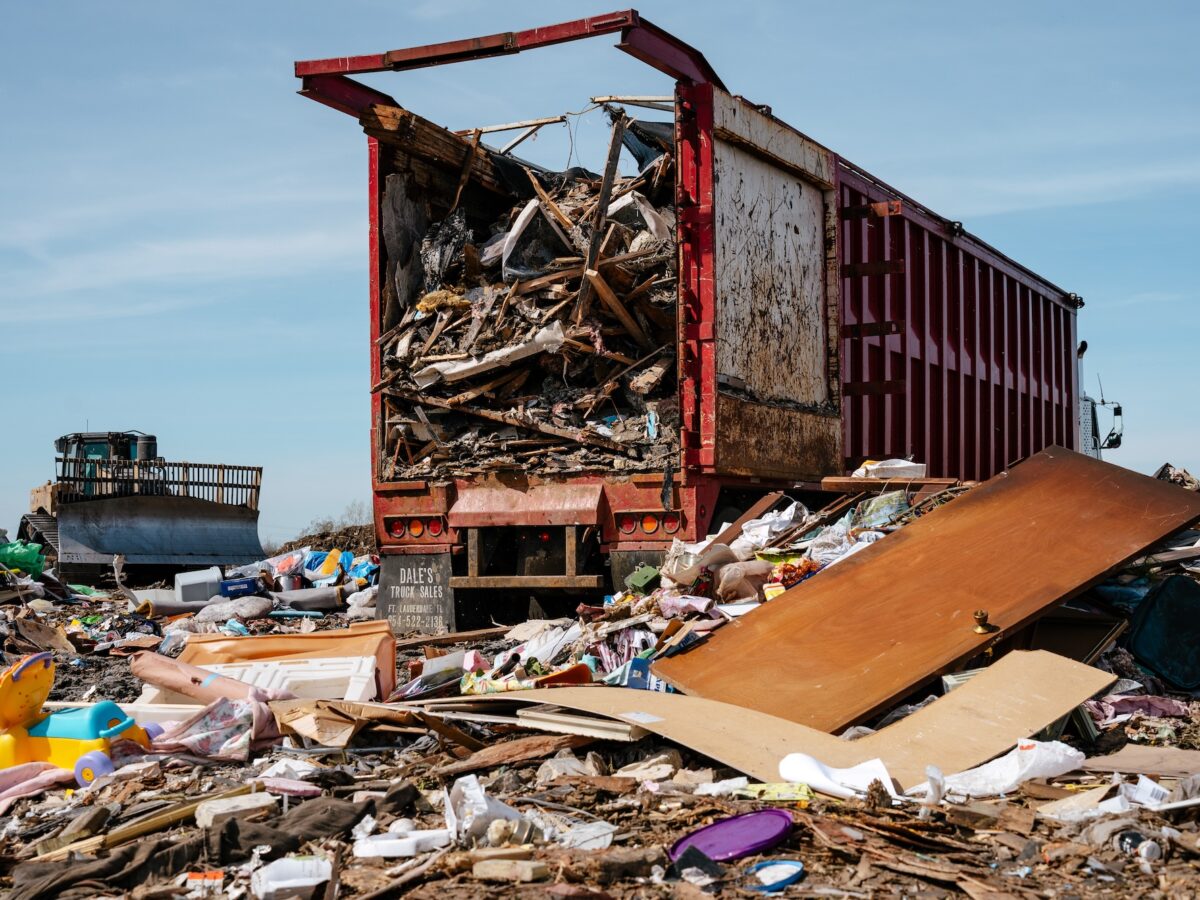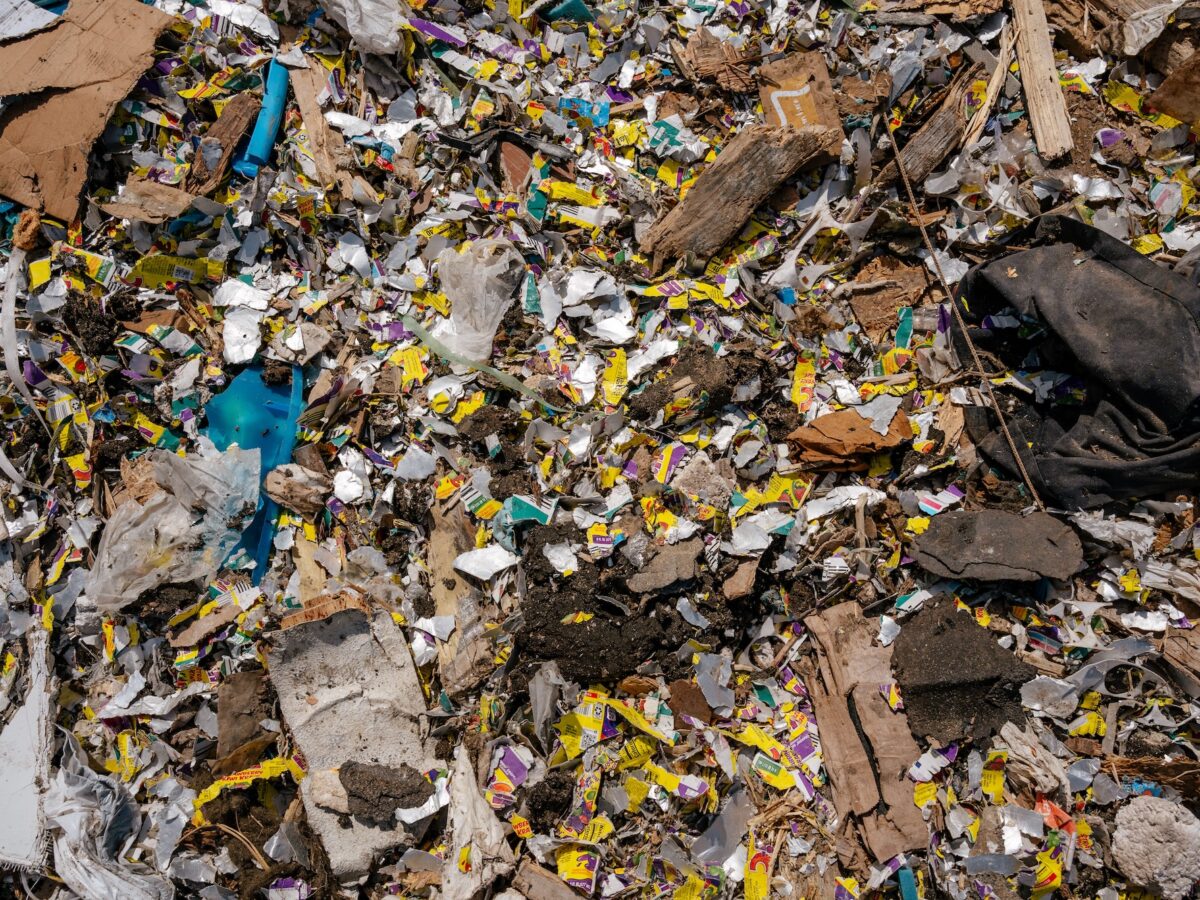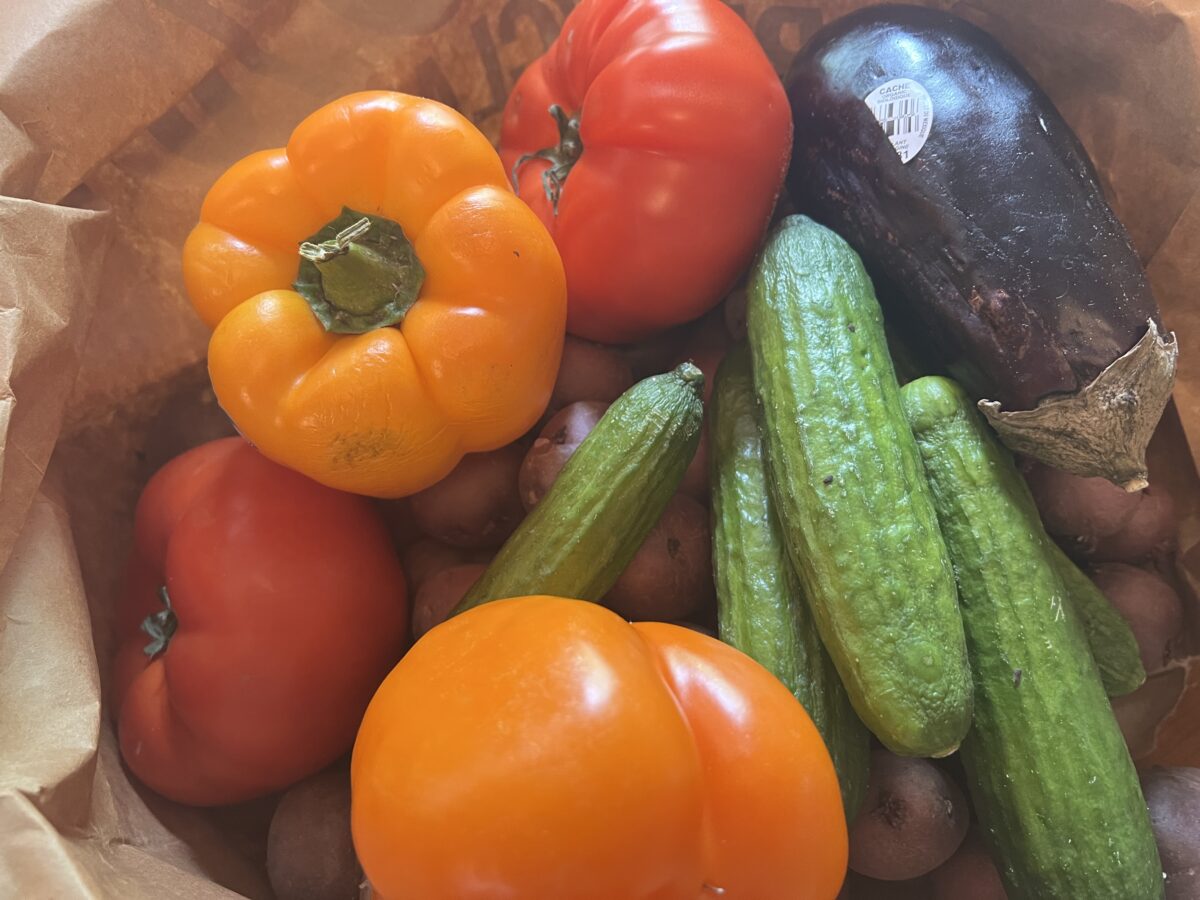Overview:
- In the heart of Michigan Central Station, EcoSphere Organics is pioneering sustainable solutions by transforming food scraps into biodegradable products through dehydration and fermentation.
- Meanwhile, Flashfood partners with retailers like Meijer to tackle food waste by offering discounted groceries nearing their sell-by date.
-Food Rescue US mobilizes volunteers to redirect surplus food from stores and restaurants to food pantries, ensuring those in need receive essential supplies.
Inside the historic Book Depository at Michigan Central—now home to Newlab’s innovation campus—Brittanie Dabney is quietly building a different kind of startup. Her company, EcoSphere Organics, doesn’t make apps or mobility tech. It makes biodegradable coasters out of banana peels.
Dabney and her team collect food scraps from local restaurants like Alchemy and Johnny’s Speakeasy— coffee grounds, citrus rinds, and eggshells—and process them into small-batch products like compostable packaging and plant-based leather alternatives.
Using dehydration and fermentation, Dabney aims to create materials that are both functional and regenerative. “I want the vision of our process and manufacturing to be sustainable,” Dabney said. “No harsh chemicals, not water intensive.”
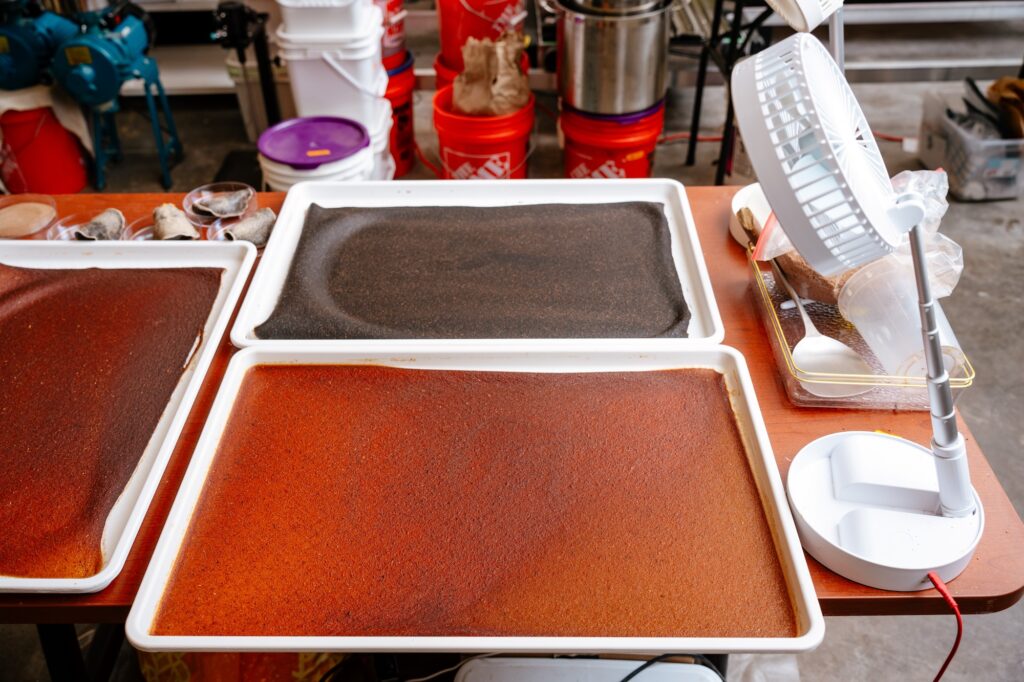
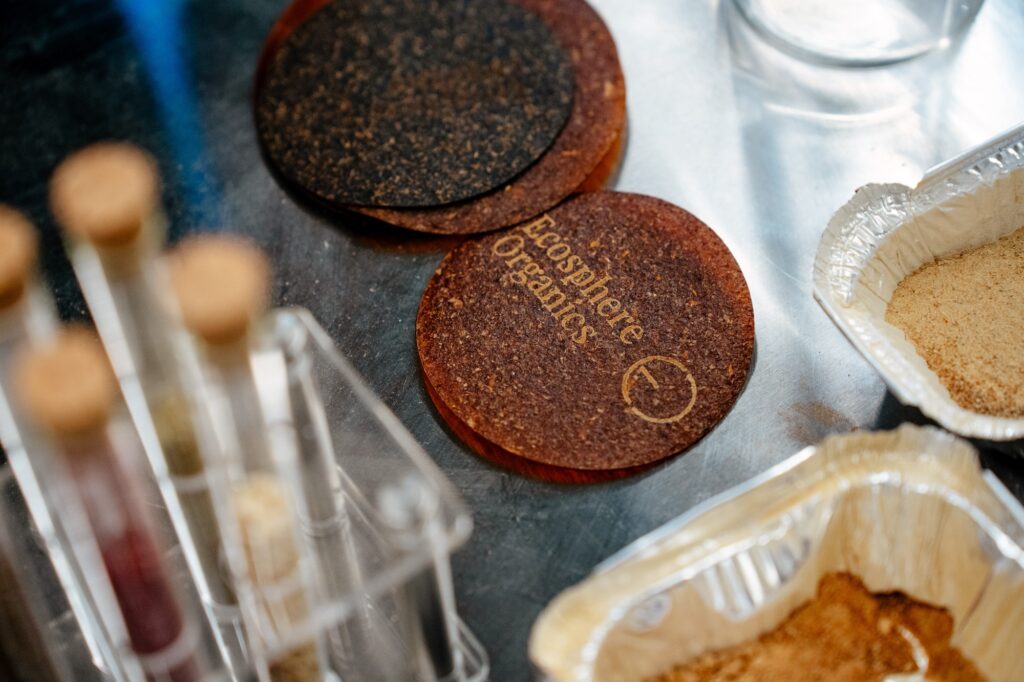
EcoSphere is still in early development, operating with grant funding and limited access to production space. “Once we’re able to get warehouse space, then we’ll be able to take on more,” she said.
The company is part of a growing movement in Michigan to look beyond composting. With 745,000 tons of food waste landfilled in Michigan every year, they’re exploring alternatives—upcycling, food rescue, apps and decentralized infrastructure that can transform waste into something more useful.
EPA data identifies more than 10,000 food service establishments across Michigan generating significant amounts of food waste, with an estimated total of over 167,000 tons per day. These range from school cafeterias and restaurants to correctional facilities and healthcare institutions, each with unique waste patterns and constraints.
The most frequently listed facility type is full-service restaurants, which account for more than 5,000 sites in the dataset. Other common sources include cafeterias, limited-service restaurants, and food service contractors.
Wayne County alone accounts for the most food waste, with more than 177,0000 pounds of average daily waste across facilities, followed by Genesee, Kent, Macomb, and Oakland counties.
This diversity underscores the need for flexible, localized strategies—technologies and programs that can intervene at grocery stores, restaurants, institutions, and beyond. The innovations emerging in Michigan represent promising steps, but broader adoption and investment will be necessary to meaningfully reduce food waste statewide.
Flashfood app: Retail tech meets waste reduction
While startups like EcoSphere are experimenting with banana peels and coffee grounds, larger players are tackling food waste at the point of sale. In Michigan, one of the most visible interventions comes from Flashfood, a mobile app that lets shoppers buy groceries nearing their sell-by date at a discount—and from Meijer, the first U.S. retailer to partner with the platform.
“Meijer was actually our first U.S. customer,” said Esther Cohn, a spokesperson for Canada-based Flashfood. “Michigan was a natural next step because we already had a strong user base and Meijer’s scale gave us a way to grow quickly.”
The model is straightforward: store staff scan soon-to-expire items—meat, dairy, produce—into the app, offering them at steep discounts. Customers place orders on their phones and pick them up from coolers near the store entrance. The goal is to keep food out of landfills and into shopping carts.
“From a grocer’s perspective, you’re making money back on items you used to throw away,” Cohn said. “You’re reducing shrink and avoiding disposal costs.” Shrink refers to inventory loss from damage and spoilage.
As of late 2023, Meijer customers had diverted more than 10 million pounds of food waste from landfills using the app, according to the company’s corporate impact report. The program began in 2021. Meijer also became the first U.S. retailer to accept SNAP/EBT payments through Flashfood, expanding access to lower-cost groceries.
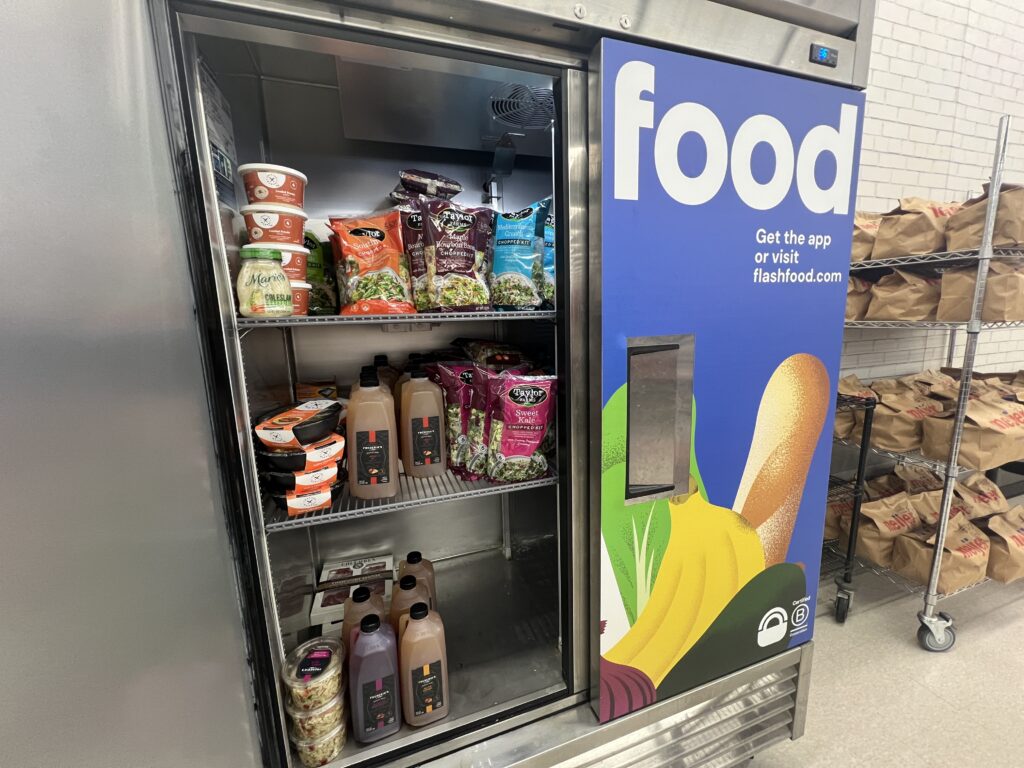
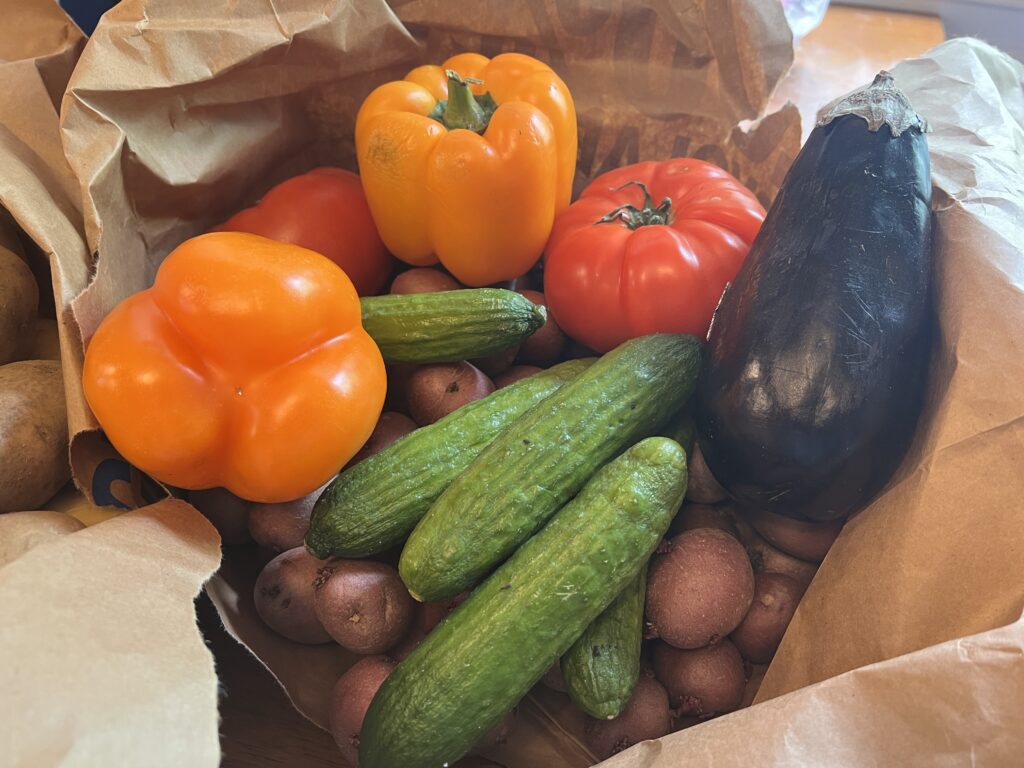
But the program requires infrastructure that many smaller grocers don’t have: digital inventory systems, trained staff, and coordinated logistics. Even at Meijer, implementation takes planning.
“We’re looking at multiple tools to address food waste,” said Erik Petrovskis, Meijer’s director of environmental compliance and sustainability. “That includes reducing waste at the source, diverting what we can, and making sure as little as possible ends up in a landfill.”
Volunteer-powered logistics: Food Rescue US in Michigan
In a parking lot outside a Whole Foods store in Midtown Detroit, Janet Damian loads trays of X, Y, and Z bread, cut-up sweet potatoes, some pies, and pineapple into the back of her Ford Flex. This isn’t a city-run program—it’s one of more than 500 monthly rescues coordinated by Food Rescue US–Detroit, a tech-enabled nonprofit that redirects surplus food from stores and restaurants to food pantries, shelters, and fridges across Southeast Michigan.
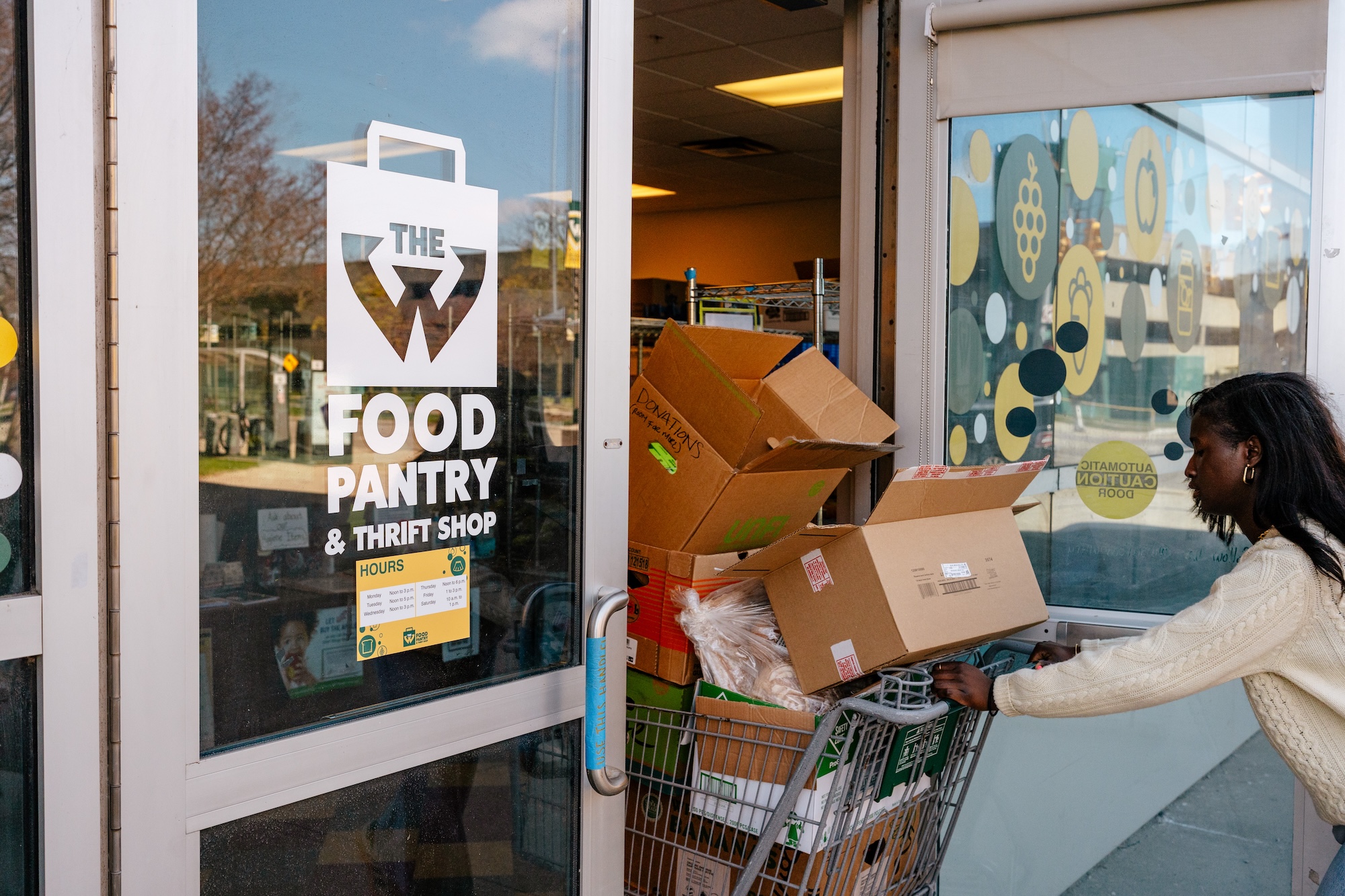
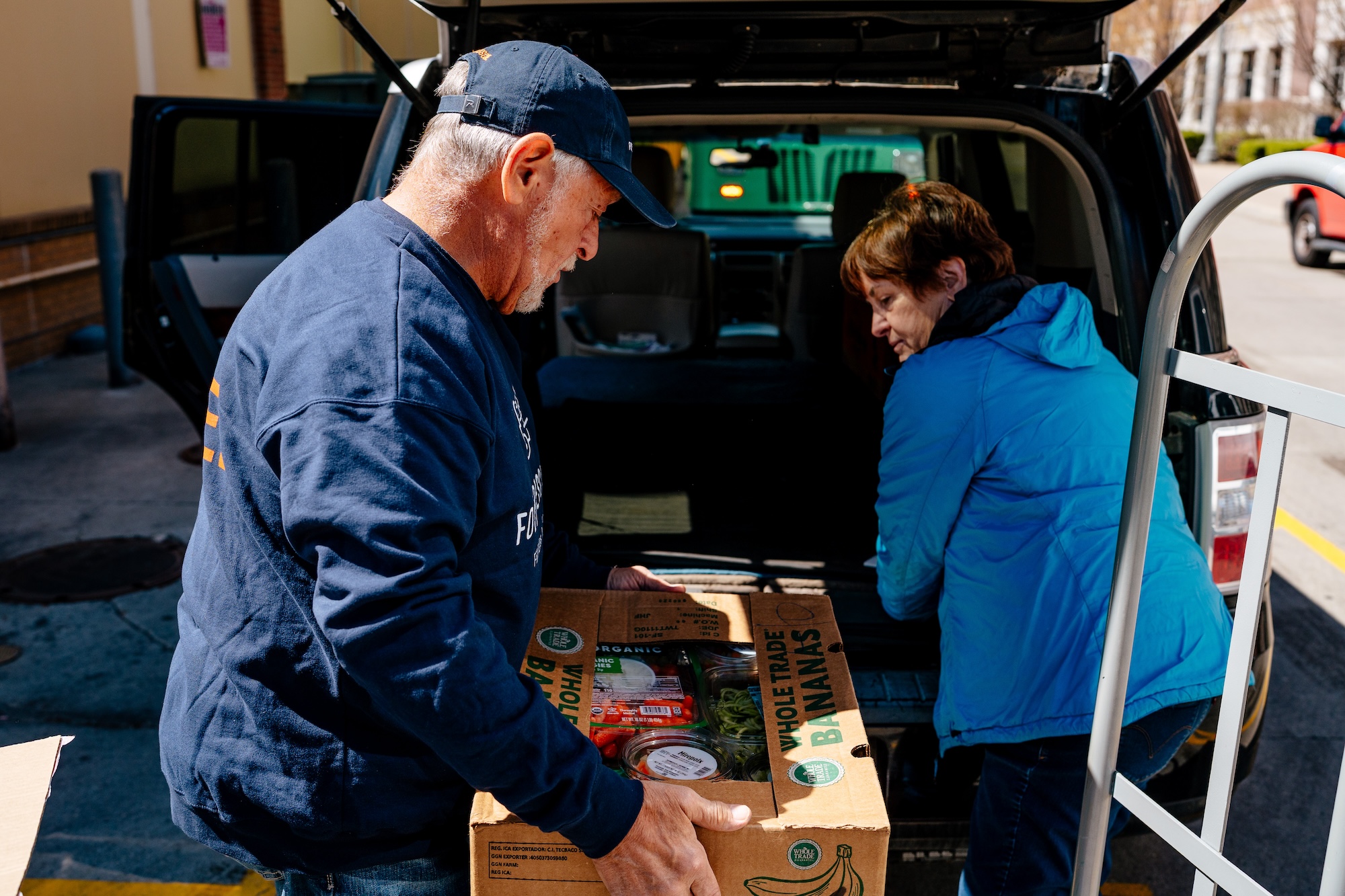
“We rescue any type of food—fresh, frozen, prepared, non-perishable,” said Darraugh Collins, who runs the organization’s Michigan operations. “Sometimes it’s a whole carload. Sometimes it’s just a few bags.”
The model relies on a lightweight infrastructure: a mobile app, a flexible network of 80 to 100 active volunteers, and over 144 food donor partners, including Target, Whole Foods, Plum Market, and LinkedIn. In 2024, the Detroit program alone rescued about 700,000 pounds of food, delivering it to more than 147 recipient agencies—many of them in the city, even though most food comes from outside its limits.
One of those volunteers is Janet Damian, a retired medical administrator who lives in Dearborn and picks up food weekly from Whole Foods and other locations. “We’re reducing food waste by distributing it to people who need it,” she said. “It’s satisfying because the need is real—and the appreciation is real.”
Her favorite moment? Delivering 30 birthday cakes from Whole Foods to the Wayne State student pantry. “Their eyes lit up,” she said. “It was like a party. It doesn’t matter what you bring—they’re just happy someone’s thinking about them.”
That joy is familiar to Kenya Maxey, who oversees the Wayne State pantry, which also includes a thrift shop. “We’ve seen over 6,700 students in the last 12 weeks,” she said. “The numbers started climbing in January.”
Maxey said the donations from Food Rescue US make their limited budget stretch further—and offer students a moment of normalcy. “They get to shop like they’re in a grocery store,” she said. “And that helps them feel like themselves.”
Despite its reach, the model has limits. “We’re at capacity with the volunteers we have,” Collins said. “We need more funding, more drivers, and ideally some paid positions to help us coordinate. The need is only growing.”
This series, produced as part of the MIT Environmental Solutions Journalism Fellowship, investigates how Michigan’s food waste system contributes to climate change through landfill methane emissions—and explores the local solutions that could turn the tide. From farm to fridge to landfill, we examine how wasted food impacts our environment, economy, and communities, and highlight the people working to build a more sustainable, climate-friendly future. Published in partnership with Next City.
Compost or combust: Why wasted food is heating up the planet — and how Michigan can stop the rot
Data reporting and visualization contributed by Shelby Jouppi. Photography by Nick Hagen.

